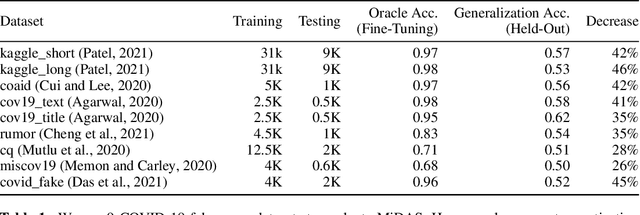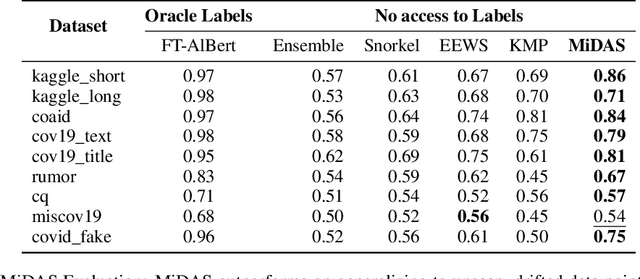MiDAS: Multi-integrated Domain Adaptive Supervision for Fake News Detection
Paper and Code
May 19, 2022



COVID-19 related misinformation and fake news, coined an 'infodemic', has dramatically increased over the past few years. This misinformation exhibits concept drift, where the distribution of fake news changes over time, reducing effectiveness of previously trained models for fake news detection. Given a set of fake news models trained on multiple domains, we propose an adaptive decision module to select the best-fit model for a new sample. We propose MiDAS, a multi-domain adaptative approach for fake news detection that ranks relevancy of existing models to new samples. MiDAS contains 2 components: a doman-invariant encoder, and an adaptive model selector. MiDAS integrates multiple pre-trained and fine-tuned models with their training data to create a domain-invariant representation. Then, MiDAS uses local Lipschitz smoothness of the invariant embedding space to estimate each model's relevance to a new sample. Higher ranked models provide predictions, and lower ranked models abstain. We evaluate MiDAS on generalization to drifted data with 9 fake news datasets, each obtained from different domains and modalities. MiDAS achieves new state-of-the-art performance on multi-domain adaptation for out-of-distribution fake news classification.
 Add to Chrome
Add to Chrome Add to Firefox
Add to Firefox Add to Edge
Add to Edge